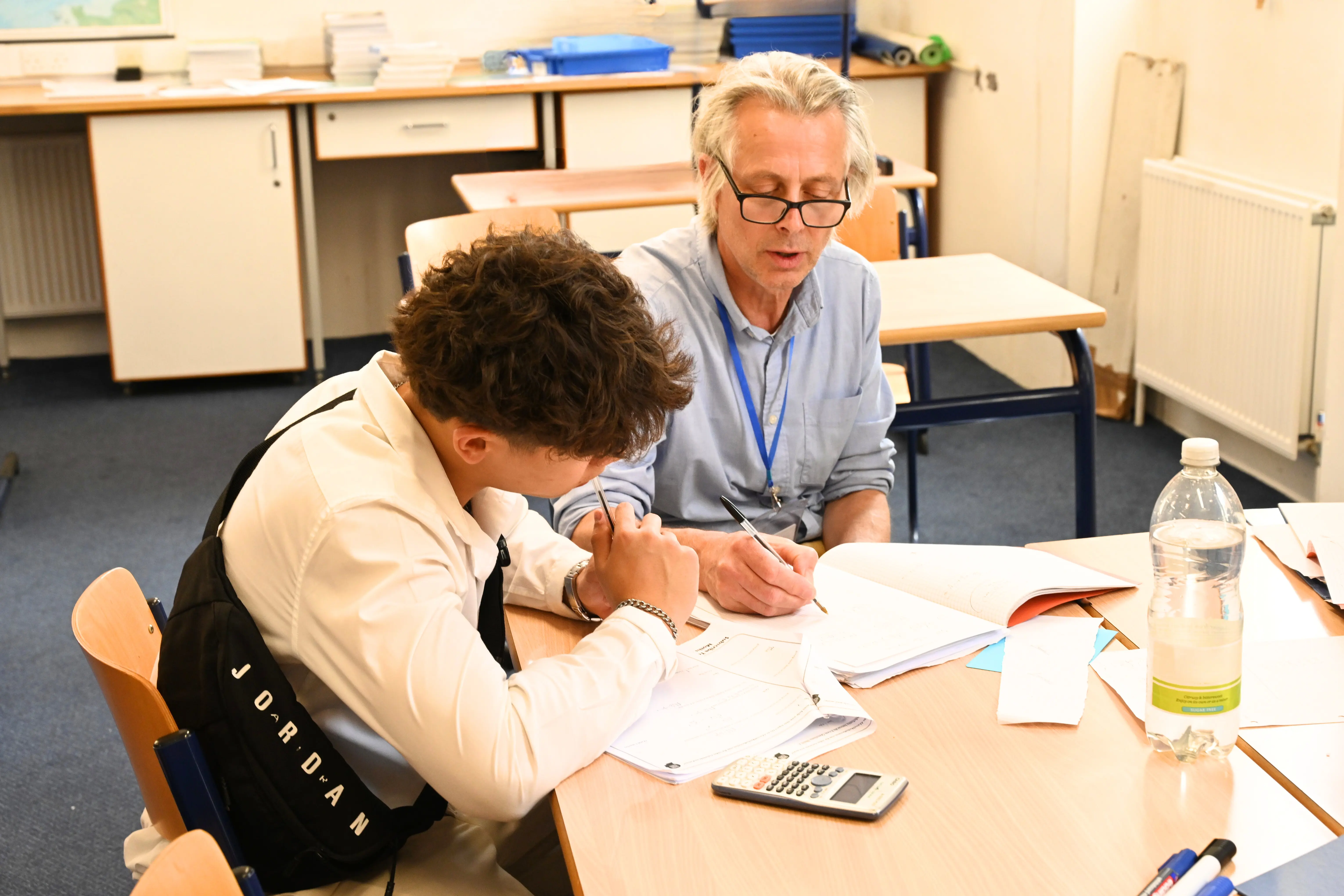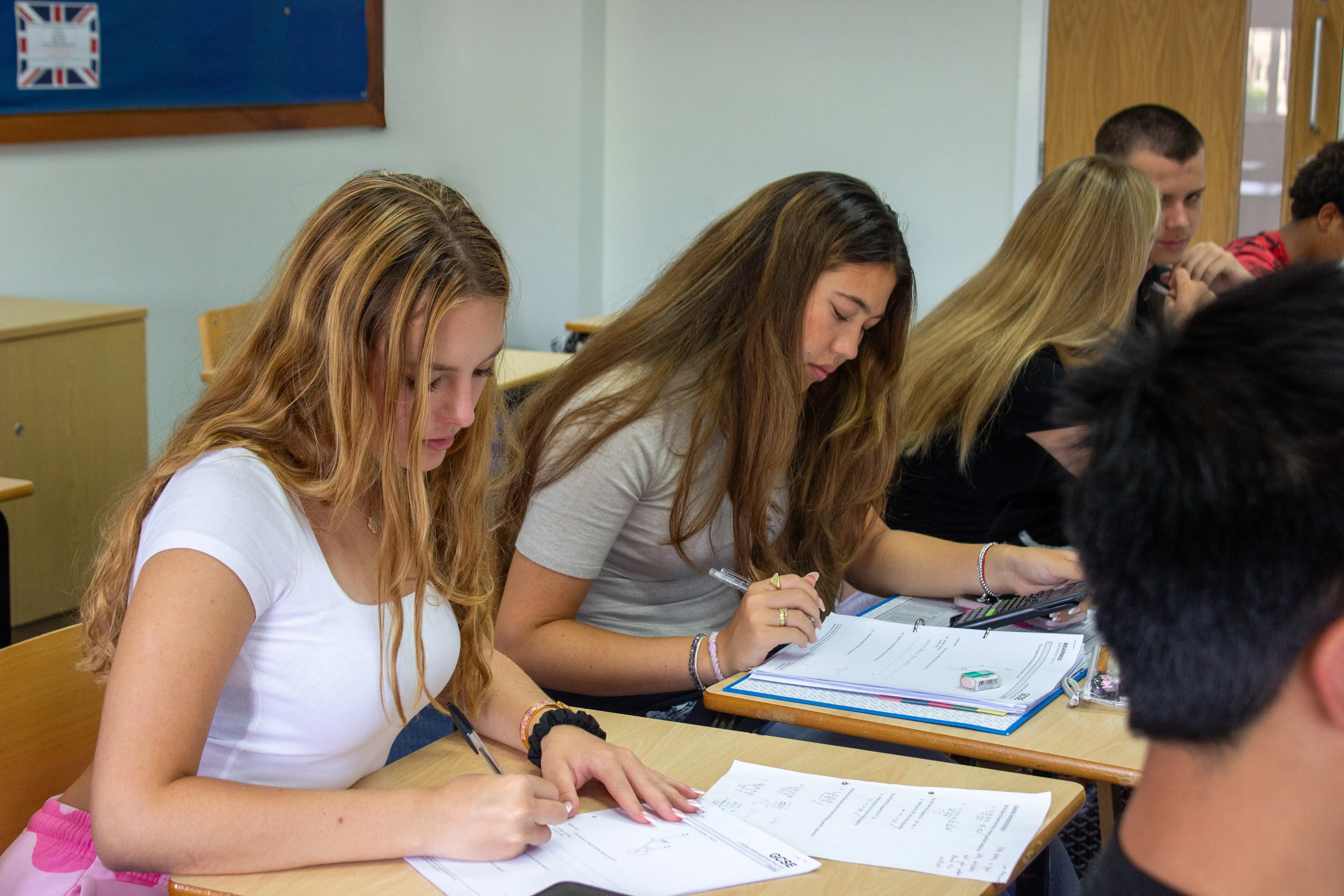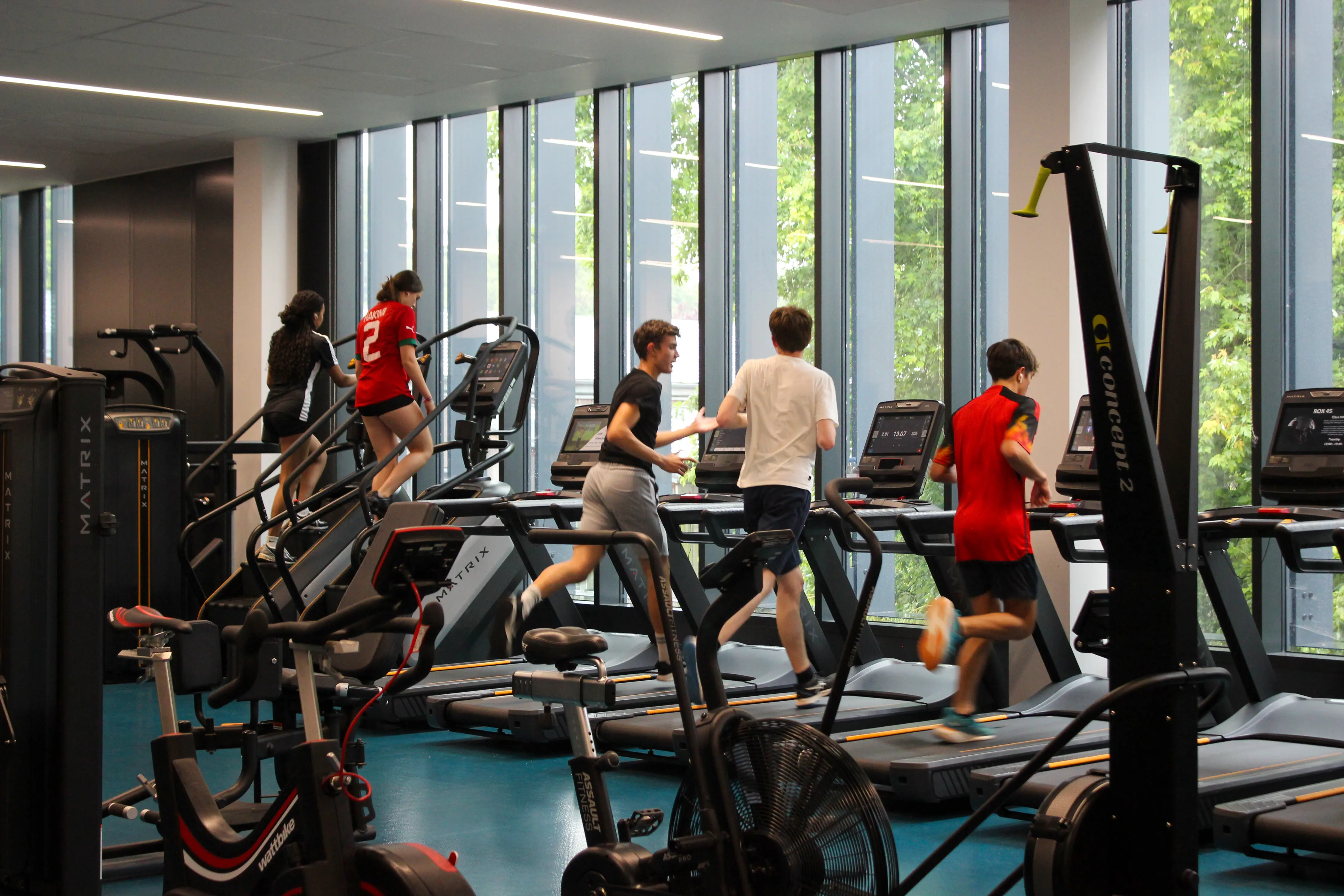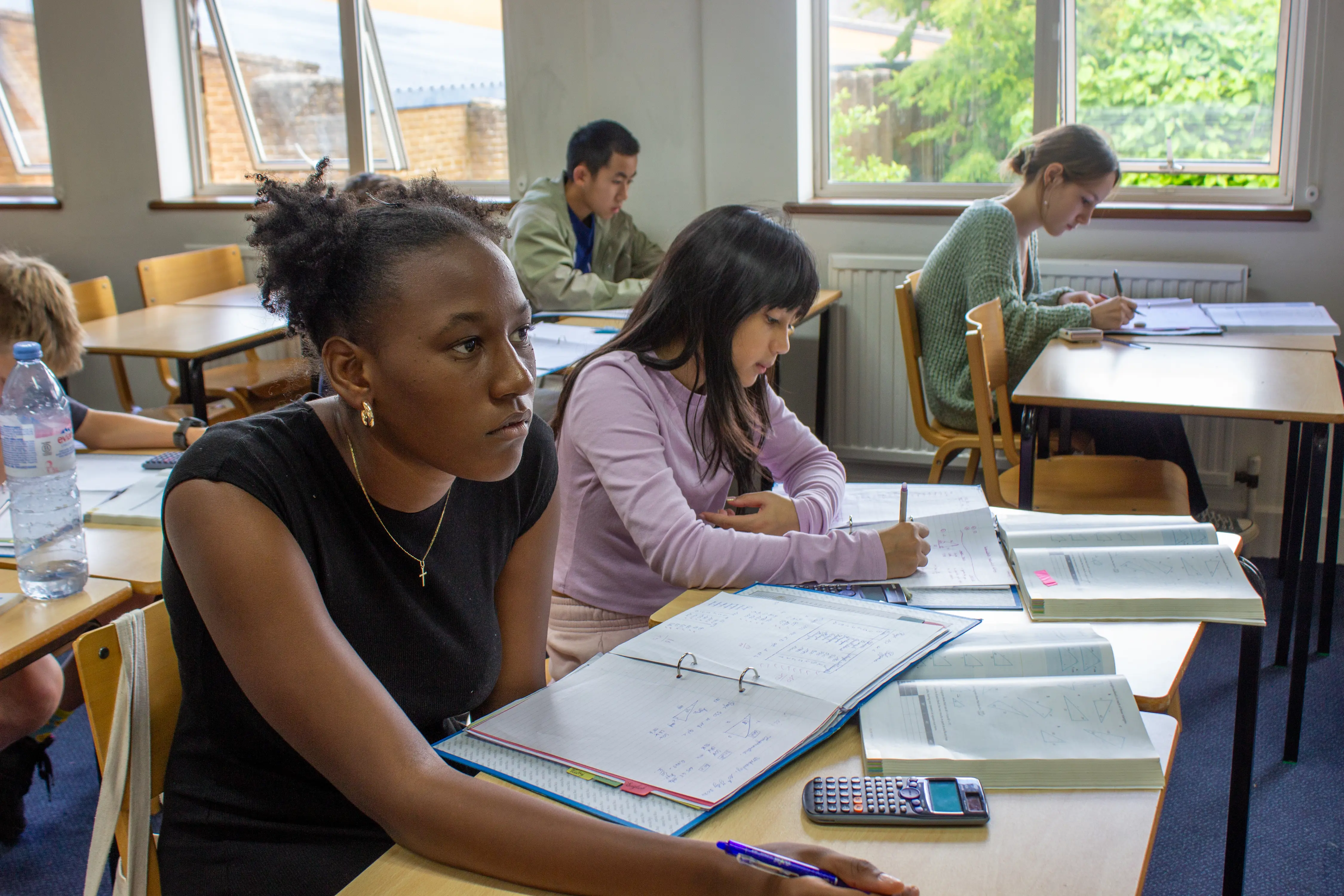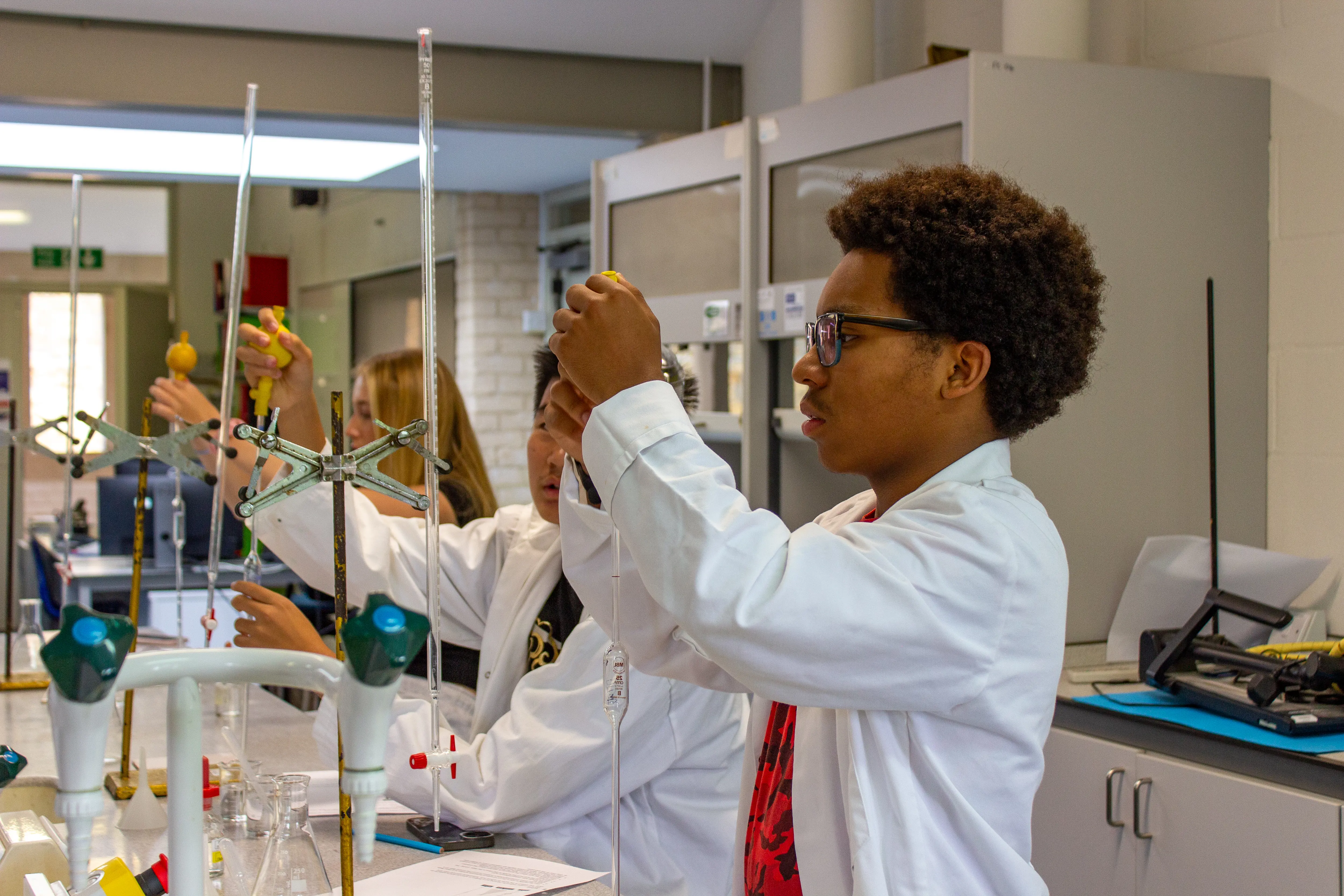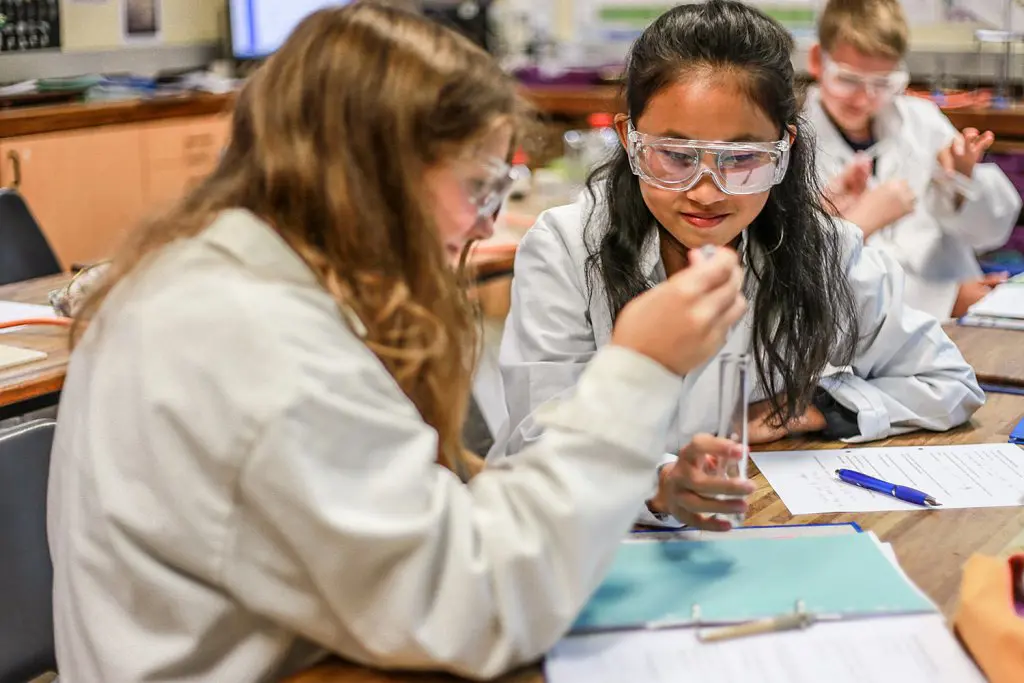GCSE/IGCSE and A level Spring Revision Course
I wanted to thank you for the wonderful revision experience our son had! He truly loved those two weeks and found them very helpful. He said all the staff and teachers were fantastic too! *from student feedback survey
For over 30 years, Sherborne International has been empowering students to excel in their exams through our highly successful Spring Revision Courses.
These courses are designed to increase the knowledge and exam confidence of students preparing for GCSE and IGCSE or A level examinations and is open to both native and non-native speakers, with both day and boarding options available.
Students choose 3 subjects to focus on for each week of the course they sign up for, and we tailor the lessons to match their examination board, for a total of 30 lessons each week - 10 hours per subject.
A level students are able to study fewer subjects per week by choosing the supervised study option on the booking form and fees are then adjusted accordingly.
Personalised Preparation:
Prior to the course, we ask all students to provide detailed information about their exams, predicted grades, specific areas for focus, bring their notes and files, and inform us of any learning challenges or Examination Access Arrangements (EAAs). This allows us to tailor classes and content to individual needs as well as make the necessary adjustments.
Expert-Led & Results-Driven:
Students benefit from our experienced educators who thoroughly consolidate knowledge, clarify key topics, and effectively tackle specific problem areas. Continuous testing and personalised feedback are integral to developing crucial exam techniques. While the course demands dedication, students consistently report a significant increase in confidence, a clearer understanding of subject matter, and a tangible improvement in their exam prospects. This intensive programme provides a valuable academic boost at a pivotal stage in their educational journey.
Class sizes are small, so students benefit from significant individual attention compared to their regular schools.
This course will be ideal for students who:
- Want to achieve their potential examination results in their chosen subject
- Want to learn important revision techniques
For students who board a weekend excursion to a nearby attraction and a full programme of sports and evening activities are included.
Revision subjects offered
We aim to cater for most standard subjects for GCSE and IGCSE and A-level. If you can’t see your subject below, please contact us and we will do our best to arrange it.
|
GCSE & IGCSE |
A Level |
|
|
Tailored Support Across Exam Boards
Our experienced teachers are adept at navigating the nuances between various exam boards.
- Sciences and Mathematics: For subjects, such as these, with only minor syllabus and question type differences, our teachers cater to all students, highlighting key variations and providing exam board-specific practice questions.
- Geography: We cover topics common to all GCSE/IGCSE specifications, including the Physical Environment, the Human Environment, and Geographical Skills and Fieldwork. Time will also be allocated for individual case studies.
- English Literature: This module provides an unparalleled opportunity to gain a comprehensive understanding of both literature papers, covering Shakespearean plays, 19th-century novels, modern prose or drama, and unseen and anthology poetry. Sessions focus on all assessment objectives and the skills necessary for higher grades. Students receive specific input for all core texts, and we foster an interactive environment for individual questions. We also dedicate time to improving essay writing skills and crafting effective responses across all genres.
- History: We request that topics are submitted in advance to tailor precisely classes to individual needs. A core focus for all will be mastering exam technique and crafting high-quality responses.
| Spring Course Fees |
|---|
|
Boarding fees: 1 week: £1,600 (Early Bird £1,500) 2 weeks: £3,100 (Early Bird £3,000) – Fees include:
Airport Transfers: £175 per student journey from Heathrow, Gatwick or Bristol Day fees: 1 week: £1,100 (Early Bird £1,000) 2 weeks: £2,200 (Early Bird £2,000) – Fees include:
Sherborne Group Students Day fee for 1 week: £950 (Applied as a discount once booking is complete) Boarding fee: £1,500 |
| Level Up Your Learning - A Guide to Effective Revision |
|---|
|
Simon Larkin Sherborne Times Janury 2025 To revise (verb): the act of texting, eating crisps, while watching YouTube with an open textbook nearby, thinking exams are miles away... Sound familiar? That’s why I’m writing about revision now, before the nerves kick in and time mysteriously accelerates as exams approach. Revision is more than cramming facts the night before an exam. Done properly, it helps reduce pre-examination anxiety, gives a good estimate of what is known (and what needs work), and solidifies learning to prevent that dreaded blankness or even worse, brain freeze mid examination. Plus, revision takes far less time than learning for the first time, and it can be done even more effectively by being organised and resourceful. But here’s the catch: if it feels easy, it’s not really revision. Struggle is part of the process - it’s what makes the sense of achievement afterwards so satisfying. Revising hard requires effort; revising well means being effective and active – just reading the material over and over will just result in eye strain, whereas making notes, mind maps, doing past papers, discussing it with friends and, best of all, teaching others are far more effective methods. Spaced learning, no, not what you do at 2am, but an evidence-based method, involves reviewing material regularly at increasing intervals, e.g. on days 2,3, 5 and 7 – thereby introducing an element of forgetting, and then restudying. The point is to make the brain work to remember what was studied in the last session. The harder the brain is challenged to recall past material, the stronger the neural connections in the brain become, and the better you will remember it in the future. Finding the time to do the work presents another challenge. Most people lead busy lives, we procrastinate, and there's usually something we'd rather be watching on Netflix than revising. A study timetable will help but it’s important to make it one you can stick to. A common mistake is to cram every slot with study, which produces something unrealistic - leading to stress, feeling overwhelmed, and ultimately giving up. Instead, start by scheduling the activities you love, so it doesn’t feel like you are sacrificing too much. Once you have done that you can fill the gaps with study – you can then share your timetable with your parents so they can see you are being responsible, and it will keep you accountable. Remember it’s a guide and you need to stay flexible. Sometimes you will find you need to relax instead of tackling that essay question - that's fine! Equally, you may get 20 minutes into a game of Fortnite and decide it's time to hit the books. When you are in the build up to exam season, it’s easy to forget the basics. While we all know a healthy diet and regular exercise is good for us, it’s worth reminding ourselves of some of the amazing benefits. Along with increased energy, improved concentration, better sleep, reduced stress and a boosted immune system, you will also feel happier, have improved memory and cognitive function, better problem-solving skills, and improved academic performance – exercise actually makes your hippocampus grow! Maintaining focus can be the hardest part, so be kind to yourself and recognise that you aren’t a zen master who can revise with notifications popping up on your phone, and your brother watching TV in the background. Reduce distractions as much as possible, study in the same place every day, (not on your bed!) and ideally at the same time, so it becomes a habit not a struggle. If you are doing all of this and still need a little extra support with your studies, you may want to consider joining a revision course, such as those we run at Sherborne International over the Easter break. Here the structure, focussed environment and regular physical activity are already established, and there are the added benefits of study skills sessions, subject and exam expertise from seasoned teachers, plus opportunities to collaborate with other students. However you do it, do it well and start doing it now 😊 |
| On Course - A student's perspective |
|---|
|
Valentin Heinz, aged 16 Sherborne Times 2024 Picture this: waiting for your fate to be decided, shipped off by your loving parents to study during your precious school holiday and far away from your friends and home. The dreary weather holds no comfort for you on arrival in the UK and met with rainy weather and floods, my expectations were low. However, this Easter, Sherborne International welcomed me with open arms.
"Learning to manage my time has been really helpful and learning how to juggle revision in the run-up to GCSEs."Although cultures from many different parts of the world are represented on the course, we also broadened our knowledge of the traditional culinary delights of England! Ranging from fried eggs and sausages for breakfast – something no self-respecting German accepts that early in the day - to a traditional Sunday roast; the menu is good, though sometimes the taste is unexpected! Students are also encouraged to try a range of juices and a salad bar and vegan and vegetarian choices are available.
Valentine Heinz is from Augsburg in Germany, and has attended two Sherborne Easter Revision Courses and two summer courses too! |
| Unlocking Success - The Benefits of a Structured Revision Course |
|---|
|
Dave Shaw - Director of Short Courses Sherborne Times January 2023 For some students, the arrival of spring will herald the exam season and a significant challenge for them and their families. Young people can find the prospect of GCSE exams a source of both internal and external stress. Internally, the pressure to perform well and secure a bright future can manifest in anxiety, sleepless nights, and a constant feeling of being overwhelmed. Externally, societal expectations, parental aspirations, and the looming shadow of the unknown can add to the burden. As someone who works to help young people to consolidate and build on their learning, I’m very aware that some teenagers resort to various coping mechanisms to deal with the mounting pressure. Procrastination, a common adversary, can lead to a last-minute scramble to cover an entire syllabus. Sleep patterns can be disrupted, and healthy eating habits might take a back seat, and the perhaps once-vibrant social life of a teenager may dwindle to make room for endless hours of solitary study. I organise the short course residential and day revision programmes that take place at Sherborne School’s Newell Grange Campus. Often locally known as Sherborne International, the site has changed from being an all year round provider for overseas students, to one where we host revision courses at Easter and in the Summer for pupils wanting to gain an academic boost prior to exams or starting a new School year. I am really proud of the reputation we have as a provider, both for our academic focus but also breadth of provision beyond the ‘School day’. Having worked with young people and our excellent teachers, many of whom return year after year, I know that daily study skills and wellbeing sessions can promote simple but effective strategies for maximising the time spent revising. Memory boosting techniques, plus more holistic tips for maintaining health – physical, mental, and emotional are so important to keep our young people balanced and positive at a demanding time when they are asked to absorb vast amounts of information across various subjects. I would always encourage breaks to keep study periods manageable and not overwhelming; encourage social contact with friends and getting fresh air to promote wellbeing. Without a systematic approach to revision I find students sometimes struggle. In the programmes I organise we recommend that students choose to focus on three subjects each week which helps to bring together scattered pieces of information, helping students build a cohesive understanding of the material, consolidating knowledge and filling in any gaps. This can be replicated at home by drawing up a simple revision timetable, breaking up subjects into manageable chunks but not transitioning too quickly, from one subject to another. Using others to help at this stage can really help, tutors, parents, peer-peer support or suchlike, positively reinforcing knowledge whilst also breaking up the seemingly endless hours of revision. Beyond consolidation, I’d also recommend students refine their exam technique. Facing the pressure of timed exams is a different challenge altogether, requiring not only a deep understanding of the subject matter but also the ability to communicate that understanding effectively within a set timeframe. Simulating exam conditions enables students to practice their skills, manage time efficiently, and develop strategies to tackle different types of questions. This can be done by asking a parent or friend to set a timer, perhaps setting a desk out as an exam desk and using a past paper to simulate the experience. It's essential to acknowledge that each learner, each young person is unique, with their own strengths and challenges. Guiding young people towards exams is no mean feat and can often be underestimated. Parents might fear it, siblings may dread it, however taking a step back to understand the individual needs of each young person and engaging them in conversation fosters a sense of confidence and empowerment, motivating our young people to push beyond their perceived limits. I find that collaborative learning can help to alleviate the isolation many students feel during this period. Surrounded by peers who share similar challenges, students can form a support network that fosters motivation, and a sense of camaraderie. The students I work with are often seeking a boost to their predicted grades, they may have struggled with motivation or organization throughout the academic year and/or need a way to alleviate the stresses associated with exam preparation. By addressing both internal and external pressures, my aspiration is to provide a supportive environment in which students can reduce stress and flourish. It's not just about academic achievement; it's about instilling confidence, fostering positive behaviours, and a sense of purpose and determination as well as making firm friends. |


